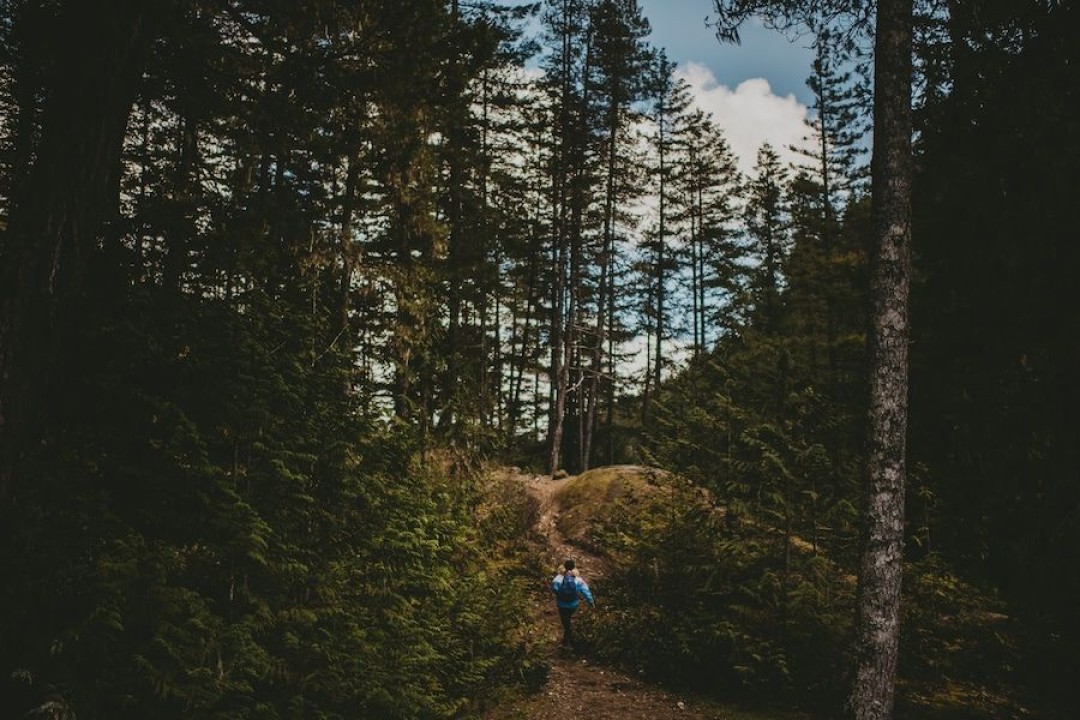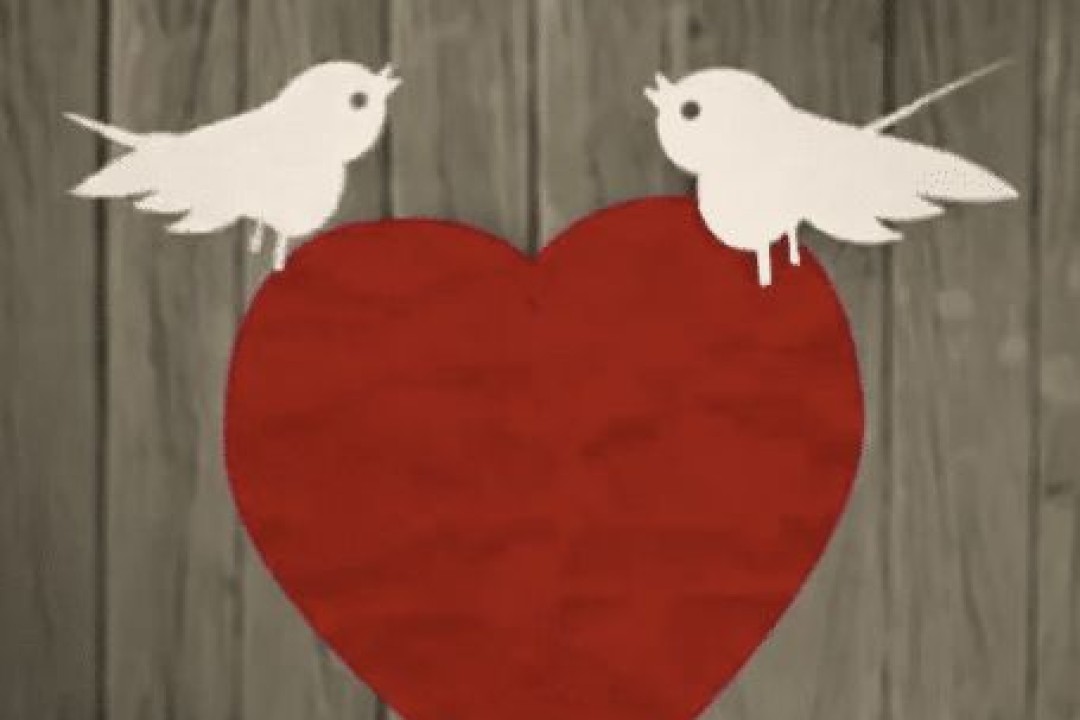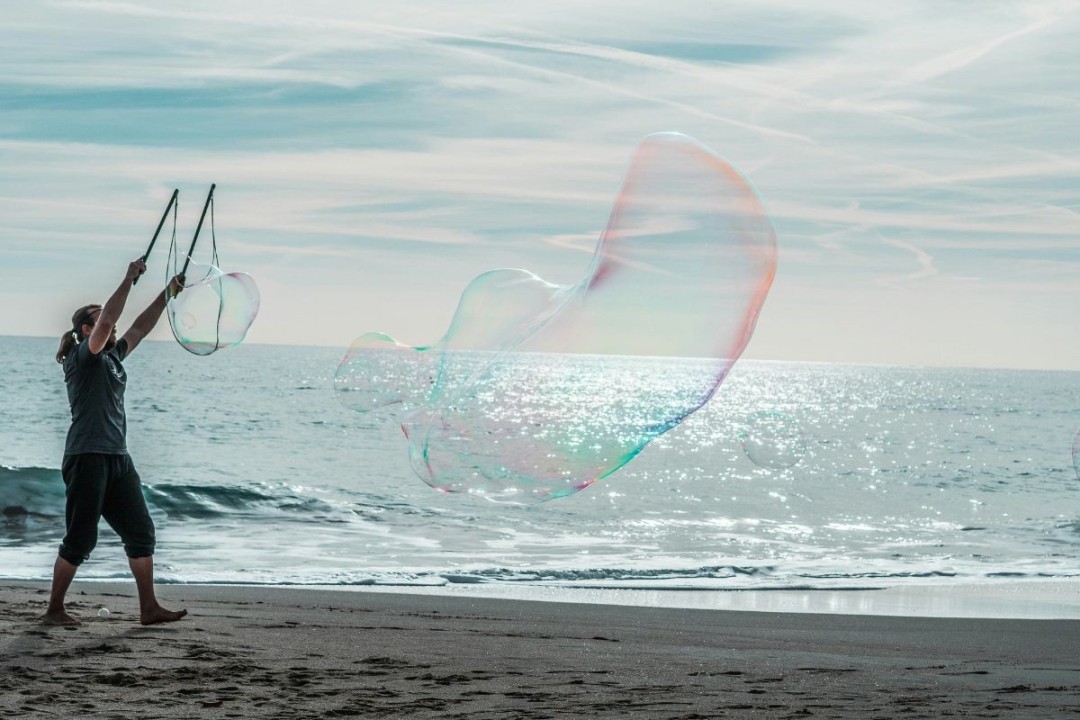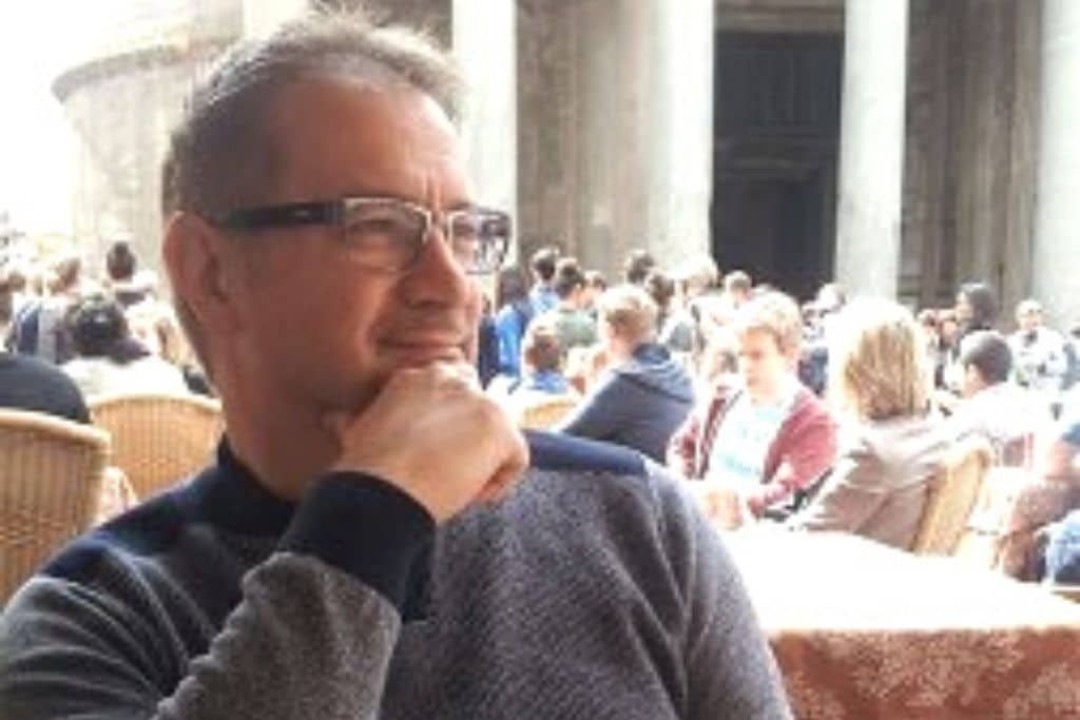Sober Story: Alison
January 12th, 2025 Interviews 6 comments
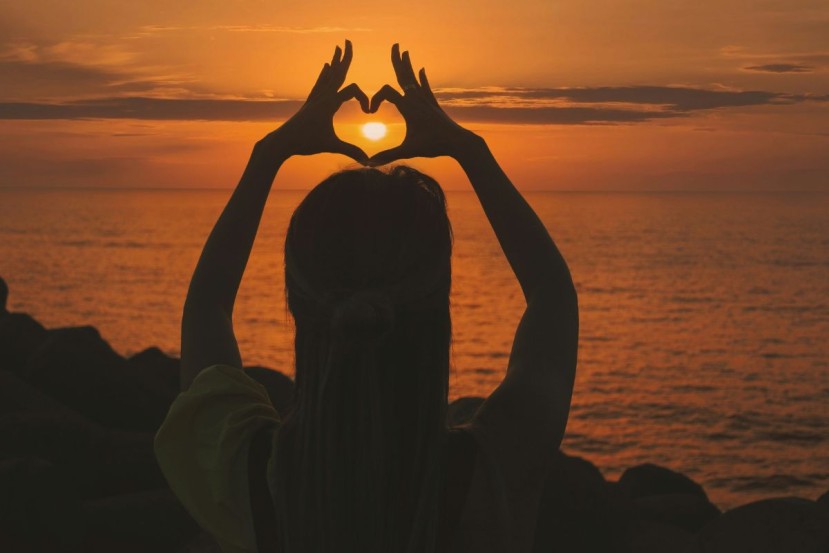
This week’s Sober Story comes from Alison, a 50-year-old living in Adelaide.
=========
Mrs D: How long have you been in recovery?
Alison: I now have 9 years of continuous sobriety and recovery.
Mrs D: What can you tell us about the last months/years of your drinking before you gave up?
Alison: I drank pretty much full time for about 25 years. The last 4 – 5 years featured major generalised anxiety, depression, overwork and many failed efforts to control my drinking. By control I mean stints where I tried to not drink at all. I already knew from decades of experience that I didn’t want to and couldn’t control the amount of drinking I did. I, to this day, don’t understand the drive to have ‘one or two’. I don’t want ‘a’ drink, I want a drunk. In those last years, I tried going 30 days without a drink – I managed 36. Then I got two weeks up. Then I got a week up. Then I quit every single day and every single day I drank.
Mrs D: That sounds intense.
Alison: Throughout all of my drinking, I was always able to pick myself up after a debacle, but those last few months I never came out of my depression. I came to realise that nothing was ever changing, even though I’d tried so many different things to make myself happy. Over the years I’d tried different jobs, different husbands, different education, different diets, different hobbies, different medications and in those last few months I realised that nothing was ever going to work. It was a dark, dark place.
Mrs D: So what led you to finally quit for good? What was the final straw?
Ailson: In the end, it was the same straw that always led me to want to get sober: Another hangover, another 3am mental beat down, another day of just surviving it rather than living it. But this time was different. It was different in that where I would have previously called in sick to work (I had many, many mystery illnesses over the years) I decided to go in that morning anyway. I was a total mess. I’d been uncontrollably crying all morning and it was worse when I got to work. I walked in and saw exactly how I was in my colleagues faces. It was shocking to them. I had no intention of quitting drinking that day, but I did know I was in serious trouble. I went to the doctor for help with my depression and told him that I simply was unable to cope with life in general. Later in the conversation I admitted to him that I had no control over my drinking and that I couldn’t quit on my own. He asked me if I wanted to quit, and I found myself saying yes, while the voices in my head were screaming NOOOOOOooooo! He prescribed me a medication to help with cravings and I haven’t had a drink since. The voices were simply gone by the next day. I think three things happened that day and over the next few weeks: One was that the very act of getting help and medication assisted me to feel like I was really doing something about myself. That gave me grace for a while. Secondly, the medication kicked in after a week or so and supported me in keeping the voices and cravings at bay. Thirdly I truly believe that, without knowing it, I completed Step 1 in admitting that I was powerless over alcohol and that my life was unmanageable and that was when my Higher Power kicked in, took my hand and led me toward my path of recovery.
Mrs D: Wow, so powerful. How was it for you in the early days? What was most difficult?
Alison: The early days were both wonderful and awful. In those first few weeks and still now, I was so chuffed that I was really doing it. 4 days sober! 10 days sober! 30 days sober! I could answer the phone again at night. I could go late night shopping. I could go and pick up take out dinner. There were so many sober firsts, it was a true joy to experience them.
Mrs D: What was so awful?
Alison: The thing that drove me the most insane was that hour between getting home from work and eating dinner. I would be in an internal rage, especially if dinner was cooked late. (I’m one of those women who’s partner does all the cooking). I knew I couldn’t get home and demand that dinner be on the table immediately and I didn’t know how to express how crazy waiting for food was making me without sounding terrible. So I sat silently, sullenly and tried not to lose it. The other most difficult thing was loneliness. I’d always felt lonely, but I didn’t know that’s what it was. Being without my best buddy, alcohol, revealed to me the extent of my disconnection with the world and I didn’t have a clue how to find people I could truly connect with. I didn’t know what to search for on the internet to find my people and I didn’t think I really deserved it anyway.
Mrs D: How did your family & friends react?
Alison: Not much. I wanted a parade every single day I stayed sober, but they were mostly non-plussed. I think most of my friends thought that I was just on another ‘alcohol free’ jag and that it would be over soon enough. Some people commented “Oh you’re not that bad”. “You’re not an alcoholic, you don’t actually need to quit, do you?” This was hard. Mum was a bit embarrassed at first and felt like she had failed me when she realised that I was very serious and identifying as an alcoholic. It didn’t take long for her to be very proud of what I’m doing and to not only share in my recovery journey but feature heavily in it. My husband was just his darling, darling self. “Good for you, well done, I love you, I’m not gonna quit with you.” And that’s okay. These have all been good lessons for me in how to do life in the raw.
Mrs D: Have you ever experienced a relapse?
Alison: Yes and no. I relapsed many, many times while trying to manage my drinking in those last few years. Daily in fact. But managing my drinking, trying to quit on my own and entering recovery are two completely different things. To this point I have not relapsed while in active recovery.
Mrs D: How long did it take for things to start to calm down for you emotionally & physically?
Alison: Physically it took about two weeks for the pain of withdrawal to settle. I had daily pounding headaches, nausea and was shaky. Emotionally, well I have to be honest, that’s a work in progress. In those early days I was taking anti-depressants which took the edge off all the highs and lows. At about 2.5 years I was feeling pretty settled within myself and beginning to yearn for deeper feelings and deeper recovery, so I took myself off my anti-depressants. After the initial month of withdrawal when I was a crying nutcase with brain zaps, I’ve been much more settled and enjoying the deeper emotions. I let them tell me what they have to tell me and I know now that they are like the weather, they pass.
Mrs D: How hard was it getting used to socialising sober?
Alison: It was hard. Not awful, just hard. Alcohol definitely loosened me up and enabled me to socialise with more ease. I hate that awkward feeling when you meet people and you have to think of things to say and normal people seem to be able to chatter away, my mind goes COMPLETELY blank and I’m a social toddler. Literally, I’ll say either nothing, or the stupidest thing you can think of. In the early days that was made worse by the surprising fact that I couldn’t stand silence. I struggled with finding what drinks I liked without alcohol in them. It turns out that water, or soda water with lime in it is just fantastic. I also found out that I don’t want to stay up all night, I get tired and want to go home and that’s totally okay. Usually there’s someone just not wanting to be the first to call it a night and they love it when I do it. Recently I attended a 40th birthday party and it turns out I love dancing still and will be on the dance floor all night with or without a drink. That was nice to know.
Mrs D: Was there anything surprising that you learned about yourself when you stopped drinking?
Alison: There is so, so much and it’s difficult to express. Initially I was surprised to learn that quitting drinking didn’t turn me into a nicer, more tolerant, morning person. That was a great disappointment. Gradually I learned that alcohol wasn’t so much my problem as I was. Alcohol was my coping mechanism that help me deal with me and the big wide world out there. I learned that I didn’t have a clue who I was, what I liked and didn’t like or how I wanted to be. Over time, I’ve come to discover that I am in fact beautiful, worthy and have a glowing spirit eager to keep growing and learning. I didn’t expect that and it’s been the greatest gift of my recovery.
Mrs D: Wow that’s wonderful to read! How else has your life changed?
Alison: My life got quieter, more peaceful. I was able to make decisions based on empowerment and what was right for me rather than fear. I stepped down several levels at work to a point where I now have a part time job in a boho world handicrafts store. It’s a far cry from managing 24 teams across two states. I wear kimonos and flats to work instead of power dresses and heels. I colour in after work rather than sitting a laptop staring at emails and spreadsheets (with a glass of wine or a heavy vodka). I stopped blaming the world around me for all of my perceived problems and I can see where I need to make adjustments if I don’t like something that is going on. I have new and different friends and deeper, more loving relationships with them and my family. I’m discovering and deepening my spiritual journey and that is something I did not see coming.
Mrs D: Can you pinpoint any main benefits that have emerged from getting sober?
Alison: I have saved so much money! I’m more capable of making good choices for myself ranging from food choices, to social choices, work choices and relaxation choices. My relationship with my husband is so much better and more settled. I have a new relationship with my mother that neither of us could have imagined. I’ve been able to be there for my brother when he had a stroke, and for his wife when she has needed emotional support. I’m absolutely not perfect, not anywhere near it, I still make a mess of things on a daily basis, but here’s the biggest benefit of sobriety: that’s okay. I’m okay, better than okay. I now know how to talk to myself more kindly, like when my mind whispers that certain people don’t like me, (that’s a big one for me) I’m able to understand that my mind is being ridiculous and trying to isolate me. I’m able to go be with those people and discover that they do love me and also that I love them. So to sum that little bit up, I’d say that one of the biggest benefits is that I can recognise when my mind doesn’t have my best interests at heart and I can kung fu fight those less than helpful thoughts.
Mrs D: Would you do anything differently given the chance to go through the process again?
Alison: I think the only things I would do differently are start earlier (I wish I had known that it’s so worth it and I’m worth it) and find my tribe sooner. Discovering Mrs D and Living Sober at around 59 days sober were really the catalysts that set me on the path of actual recovery as opposed to just being alcohol free.
Mrs D: And we love having you here! Any advice or tips for those who are just starting on this journey?
Alison: Find your tribe. Find those people who ‘get’ you. That oldie: one day at a time is so true and actually really freeing. So just don’t drink today. Tomorrow is this whole other universe, you can deal with it when it comes. Explore every path you can find. Doctors, 12 step, Refuge Recovery, SMART Recovery, LifeRing, counselling… Whatever works, I don’t care which path you follow, just get on one. Explore all that online has to offer. Obviously I’d highly recommend Living Sober, but there are so many groups on Facebook that you can join. Listen to podcasts, read books and blogs. Alcohol kills your spirit and it kills your life – getting it out of your life requires you to throw the kitchen sink of tools at it. Take it seriously, even if you think you are over reacting. To me it’s like climate change – even if you don’t believe in it, it’s still worthwhile to look after the earth we live on.
Mrs D: Anything else you’d like to share?
Alison: Getting sober is hands down the best, bravest, craziest most wonderful thing I’ve ever done. I wish it for everyone.
Continue reading
How do you move on from the need to escape?
With great bloody difficulty.
March 30, 2025 – 6 comments
Sober Story: Shirley
This week’s Sober Story comes from Shirley, a 43-year-old living in London.
March 27, 2019 – 12 comments
Sober Story: Jo
"I spent years wondering if it was a problem and relied on others to tell me “Oh no, you’re fine!” I wasn’t fine."
December 27, 2024 – 8 comments
Sober Story: Graham
"The obsession and desire for a drink was there daily for at least the first 9 months. I sometimes only got through by breaking the day into hours."
November 7, 2022 – 5 comments
